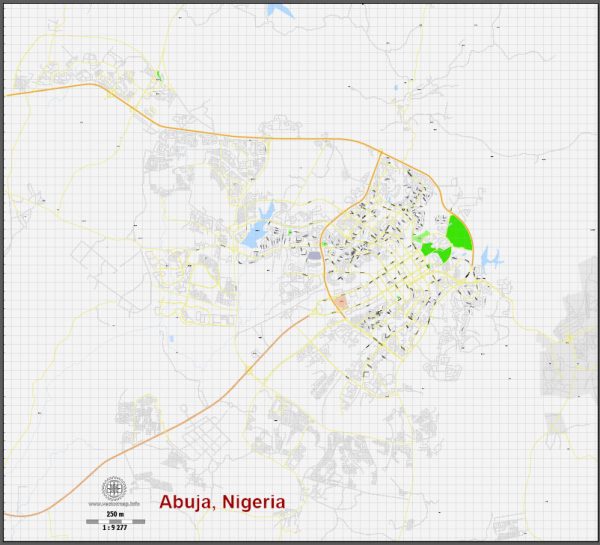Abuja, the capital city of Nigeria, is home to several prominent buildings and landmarks that reflect the country’s rich history, culture, and architectural diversity. Some of the most famous structures in Abuja include:
- Nigerian National Mosque (National Mosque Abuja):
- This is the national mosque of Nigeria and one of the largest mosques in Africa. It is an architectural masterpiece, featuring impressive domes and minarets. The mosque can accommodate a large number of worshippers and stands as a symbol of Nigeria’s commitment to Islam.
- National Christian Centre:
- Also known as the National Ecumenical Centre, this is the primary Christian place of worship in Abuja. The architecture is a blend of Christian symbolism, and the complex includes a church, conference center, and other facilities.
- Aso Rock:
- Aso Rock is a large outcrop that dominates the city’s skyline. At the summit is the Nigerian Presidential Complex, which includes the Nigerian Presidential Villa (Aso Villa). The complex is the official residence of the President of Nigeria and the seat of the Nigerian government.
- National Assembly Complex:
- This is where the Nigerian federal legislature, the National Assembly, convenes. The complex consists of the Senate and House of Representatives chambers. The architecture is modern and symbolic, representing Nigeria’s commitment to democratic governance.
- The Central Bank of Nigeria Headquarters:
- Designed to reflect Nigeria’s economic strength, the Central Bank’s headquarters is an iconic building in Abuja. The structure is characterized by its unique shape and modern design, showcasing the importance of the financial sector in the country.
- Millennium Tower:
- The Millennium Tower is a distinctive skyscraper in the Central Business District of Abuja. Although completion has faced delays, the tower is intended to be one of the tallest buildings in Nigeria and a symbol of the country’s progress into the 21st century.
- Jabi Lake:
- While not a building, Jabi Lake is a popular landmark in Abuja. It’s an artificial lake that offers recreational activities, including boat rides and water sports. The area around Jabi Lake has become a hub for social and leisure activities.
- Nnamdi Azikiwe International Airport:
- As the main airport serving Abuja, the Nnamdi Azikiwe International Airport is an important transportation hub. The airport’s terminal features modern architecture and facilities, welcoming visitors to the capital city.
These buildings and landmarks contribute to the unique character of Abuja, showcasing the city’s blend of tradition and modernity.


 Author: Kirill Shrayber, Ph.D. FRGS
Author: Kirill Shrayber, Ph.D. FRGS